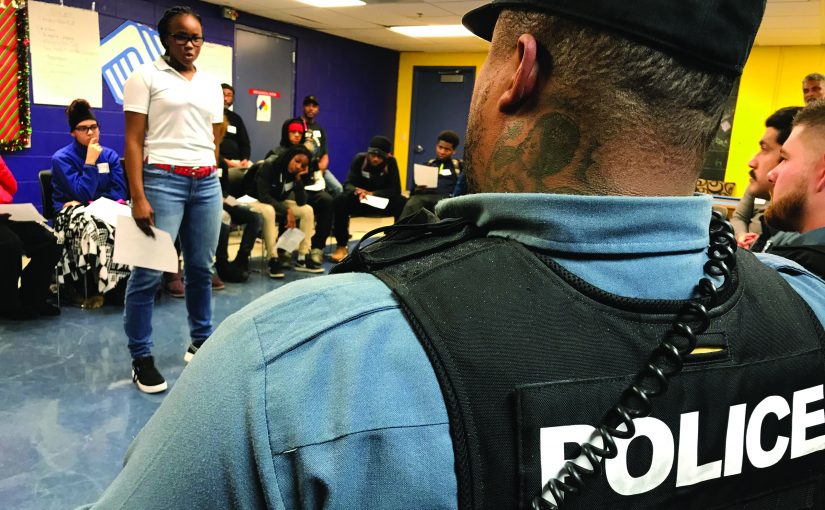
The relationship between police officers and teens has built-in complexities. Countless youth development studies have shown that the road to adulthood in teenage years is marked by a need to take risks and test authority. Social scientists posit that it is a natural part of an evolutionary pattern of seeking independence and autonomy. However, it is also known that the human brain continues to grow into the mid-twenties, with the frontal cortex that governs executive decision-making being the last part to develop. The stark truth about adolescence is that, at some point, most kids push the boundaries of risk and rebellion with a degree of recklessness they will outgrow in later years.
Most police officers have had firsthand experience with this phenomenon. Law enforcement officers, as symbols of authority, are often perceived by teenagers as an opposing force that should be resisted and not trusted. Resistance is heightened particularly for urban youth whose perceptions of police are further affected by generational transmission of trauma from negative police encounters.


